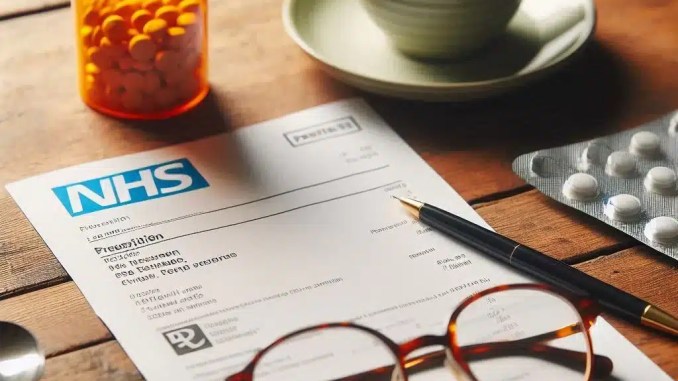
We are so lucky in the UK to have excellent free healthcare and subsidised medicines through the NHS. It costs £9.90 ( June 2024) for a single item on prescription, compared to the hundreds or even thousands of dollars our American cousins pay for medications. Nevertheless if you need a lot of medications, the costs can add up quite quickly. Here are some tips to save money on NHS prescriptions.
Prescription Prepayment Certificates (PPCs)
One of the easiest ways to save on prescription costs is by purchasing a Prescription Prepayment Certificate (PPC). A PPC can save you money if you need more than 12 prescriptions per year. As of 2024, a three-month PPC costs £32.05, and a 12-month PPC costs £114.50. For this fee, you can get unlimited prescriptions without additional charges while the certificate is valid.
You can spread the cost of a yearly prepayment certificate by setting up a direct debit, which allows you to pay in 10 installments.
Check for Exemptions
Certain groups are exempt from paying prescription charges. You might be eligible for free prescriptions if you:
– Are over 60 or under 16 years old (or under 19 and in full-time education).
– Are pregnant or have had a baby in the last 12 months (with a valid Maternity Exemption Certificate).
– Have a specific medical condition such as diabetes or epilepsy (with a valid Medical Exemption Certificate).
– Are on certain benefits such as Income Support, Universal Credit, or Pension Credit.
Check the latest exemption criteria on the NHS website to see if you qualify.
Ask for Generic Medications
Generic medications are typically much cheaper than brand-name equivalents and are equally effective. When your doctor prescribes medication, ask if a generic version is available. Pharmacists can also tell you whether a cheaper alternative is available.
Split Prescriptions
Many medicines can be supplied for two months on prescription. A two-month supply of your regular medication instead of a monthly prescription will save you 50% on your prescription costs. Ask your doctor if they will consider prescribing less frequently.
NHS Low Income Scheme (LIS)
You might qualify for the NHS Low Income Scheme (LIS) if you are on a low income. Depending on your financial situation, this scheme provides full or partial help with prescription costs. To apply, you need to fill out form HC1, which is available from your GP, pharmacy, or online. You cannot get help from the LIS if you have more than £6,000 in savings.
Use Online Pharmacies
Online pharmacies approved by the General Pharmaceutical Council (GPhC) sometimes offer more competitive prices. They also provide home delivery, which can save on travel costs. Check the pharmacy’s legitimacy by looking for the GPhC logo.

Consider Over-the-Counter Options
Some medications doctors prescribe can be bought over-the-counter (OTC) at a lower cost. Pain relievers, antihistamines, and certain topical treatments are often cheaper OTC than through a prescription. Always check with your doctor or pharmacist before making any changes, but they will often tell you if you can get the same medicines for a lower price.
Save Time With The NHS App
The NHS App allows you to manage your prescriptions online, including ordering repeat prescriptions and finding local pharmacies. You can also use the app to check if you need urgent medical help, view your GP health record and manage your upcoming appointments.


Leave a Reply